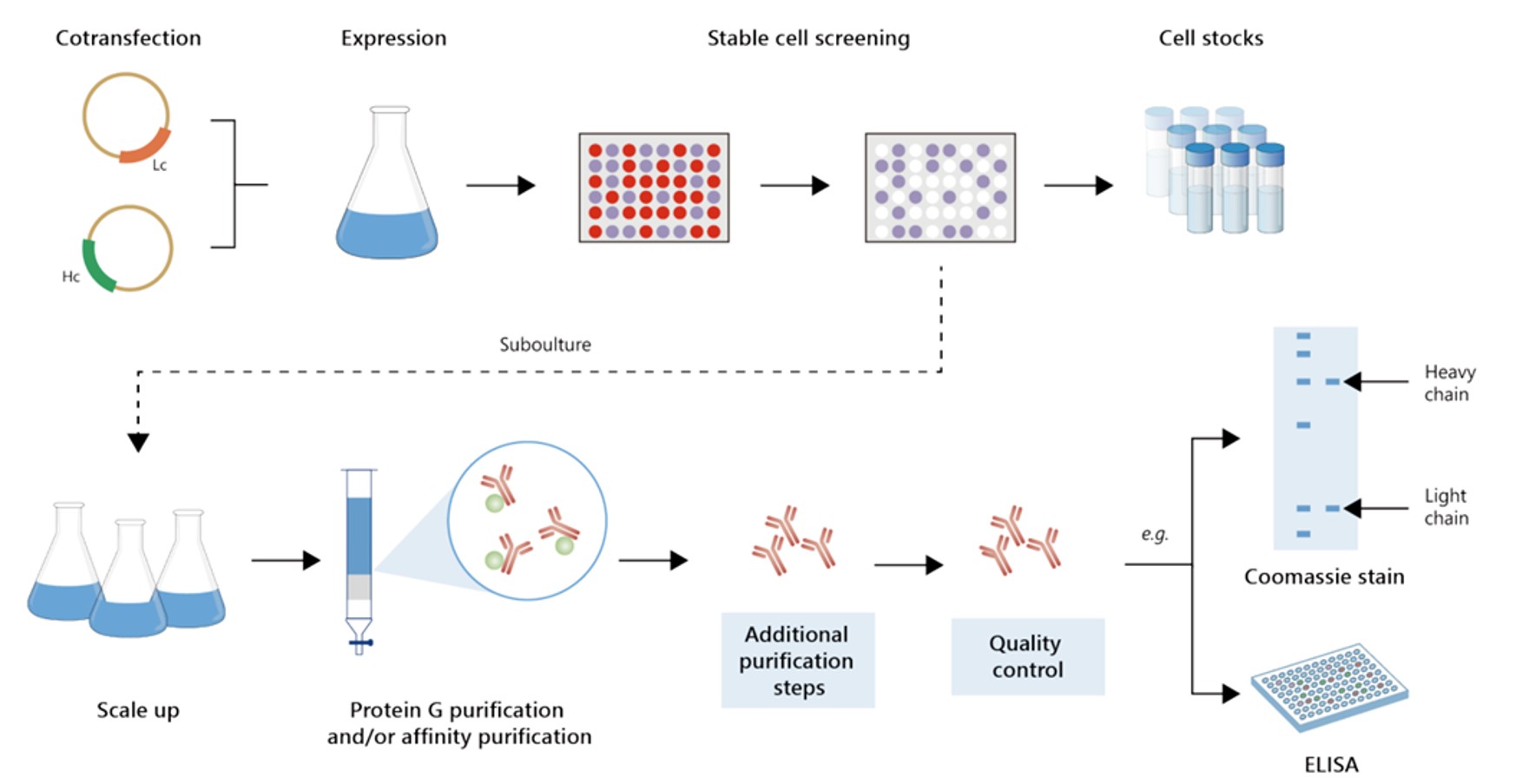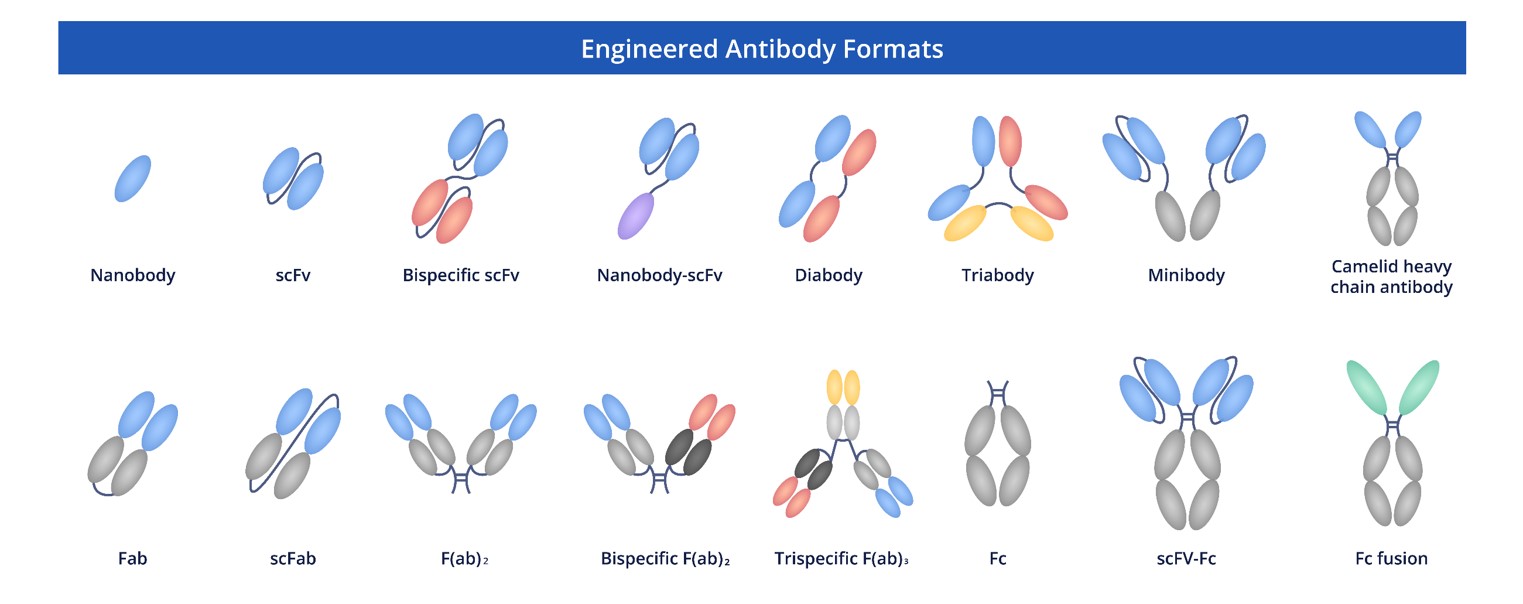 Loading...
Loading...

Anti-ACACB Recombinant Antibody Products
 Loading...
Loading...Anti-ACACB Products
-
- Species Reactivity: Human
- Type: Rabbit IgG
- Application: WB, IHC-F, IHC-P, ICC, IF
-
- Species Reactivity: Human
- Type: Rabbit IgG
- Application: WB, IHC, IF
- Anti-ACACB Immunohistochemistry Kit (VS-0525-XY56)
-
- Species Reactivity: Human
- Target: ACACB
- Application: IHC
-
- Derivation: Phage display library screening
- Species Reactivity: Human
- Type: Rabbit IgG
- Application: WB, IHC, ICC, IP
Can't find the products you're looking for? Try to filter in the left sidebar.Filter By Tag
Our customer service representatives are available 24 hours a day, from Monday to Sunday. Contact Us
For Research Use Only. Not For Clinical Use.
Creative Biolabs delivers globally recognized, innovative recombinant antibodies targeting ACACB, which are pivotal for advancing biomedical research. By leveraging our advanced technological platforms, we ensure that our products adhere to the strictest benchmarks of quality and performance. Our dedication to accelerating scientific discovery is evident in our comprehensive portfolio of recombinant solutions, each crafted to provide outstanding value and dependability. In addition to our premium antibodies, we take pride in offering exceptional technical support to assist researchers in every phase of their work. With Creative Biolabs, you not only access groundbreaking solutions but also gain a committed partner for your scientific initiatives.
ACACB: A Critical Regulator in Metabolic Disorders and Cancer Progression
ACACB is a key enzyme involved in fatty acid metabolism and has been increasingly studied for its role in various metabolic disorders. It catalyzes the carboxylation of acetyl-CoA to malonyl-CoA, a critical step in the regulation of fatty acid oxidation. Dysregulation of this enzyme’s activity has been linked to obesity, insulin resistance, and type 2 diabetes, where altered lipid metabolism contributes to impaired glucose homeostasis and chronic inflammation. Elevated expression levels are often associated with increased malonyl-CoA concentrations, which inhibit carnitine palmitoyltransferase-1 (CPT1), thereby reducing fatty acid oxidation and promoting lipid accumulation in tissues such as liver and muscle. This disruption exacerbates metabolic syndrome components and increases the risk of cardiovascular disease. Additionally, changes in its function have been implicated in non-alcoholic fatty liver disease (NAFLD), where excessive lipid storage leads to liver inflammation and fibrosis. Research also suggests a role in cancer metabolism, as altered fatty acid synthesis supports rapid cell proliferation and survival under nutrient-limited conditions. Due to its central position in controlling lipid balance and energy metabolism, it represents a promising therapeutic target for treating metabolic and related chronic diseases. Continued investigation is vital to fully elucidate its complex involvement in health and disease.
Alternative Names
Complement Acetyl-CoA Carboxylase Beta; Acetyl-Coenzyme A Carboxylase Beta; Acetyl-CoA Carboxylase 2; ACC-Beta; ACC2; ACCB; EC 6.4.1.2; HACC275
Background
Acetyl-CoA carboxylase (ACC) is a complex multifunctional enzyme system. ACC is a biotin-containing enzyme which catalyzes the carboxylation of acetyl-CoA to malonyl-CoA, the rate-limiting step in fatty acid synthesis. ACC-beta is thought to control fatty acid oxidation by means of the ability of malonyl-CoA to inhibit carnitine-palmitoyl-CoA transferase I, the rate-limiting step in fatty acid uptake and oxidation by mitochondria. ACC-beta may be involved in the regulation of fatty acid oxidation, rather than fatty acid biosynthesis. There is evidence for the presence of two ACC-beta isoforms.
Enzymes, Metabolic proteins, Plasma proteins
Intracellular
Cell type enhanced (Hepatocytes, Astrocytes, Adipocytes)
Immune cell enhanced (eosinophil)
Cell line enriched (ASC diff)
Monomer, homodimer, and homotetramer (PubMed:20952656, PubMed:18772397). Forms filamentous polymers (PubMed:20457939, PubMed:20952656, PubMed:19900410). Interacts with MID1IP1; interaction with MID1IP1 promotes oligomerization and increases its activity in a citrate-dependent manner (PubMed:20952656, PubMed:20457939).
Allosteric enzyme, Ligase, Multifunctional enzyme
Anti-ACACB rAb Products
We are dedicated to accelerating research and discovery by providing our premium anti-ACACB recombinant antibody products that embody the highest quality, exceptional value, and comprehensive top-tier technical support.
| Cat. No. | Product Name | Target Species | Host Species | Applications |
| VS3-FY11 | Recombinant Rabbit Anti-ACACB Antibody (clone R07-2G8) | Human | Rabbit | WB; IHC-F; IHC-P; ICC; IF |
| VS13-YC11 | Rabbit Anti-ACACB Recombinant Antibody (VS13-YC11) | Human | Rabbit | WB; IHC; IF |
| MOR-0028 | Rabbit Anti-ACACB Recombinant Antibody (clone DS28AB) | Human | Rabbit | WB; IHC; ICC; IP |
Customer Reviews

Recombinant Rabbit Anti-ACACB Antibody (clone R07-2G8) (CAT#: VS3-FY11)

Anti-ACACB Recombinant Antibody (clone DS28AB) (CAT#: MOR-0028)
rAb Production
With accumulated extensive expertise over the years in recombinant antibody development and optimization, we deliver high-quality recombinant antibody products of exceptional standards through our top-tier service offerings—enabling us to ensure superior quality and reliability within the shortest possible timeframe for our clients.
Featured Anti-ACACB Recombinant Antibody Production Platforms
Fig.1 Milligram-scale anti-ACACB recombinant antibody production.
 Fig.2 Gram-scale anti-ACACB recombinant antibody production.
Fig.2 Gram-scale anti-ACACB recombinant antibody production.
rAb Modalities
Creative Biolabs is deeply committed to providing researchers with the most comprehensive and cutting-edge high-quality recombinant antibodies across diverse formats. Our expertise in recombinant antibody technology spans a broad and diverse array of advanced engineering methodologies, and our products are supported by exceptional custom engineering services meticulously designed to meet your unique research requirements.
 Fig.3 Full Length Anti-ACACB Recombinant Antibody Production and Modalities
Fig.3 Full Length Anti-ACACB Recombinant Antibody Production and Modalities
For more information about ACACB or assistance with your experiments, please contact us by phone or email. Our technical specialists are available to provide guidance on antibody selection, protocol optimization, or troubleshooting. Contact us today to discuss how we can support your research objectives.



